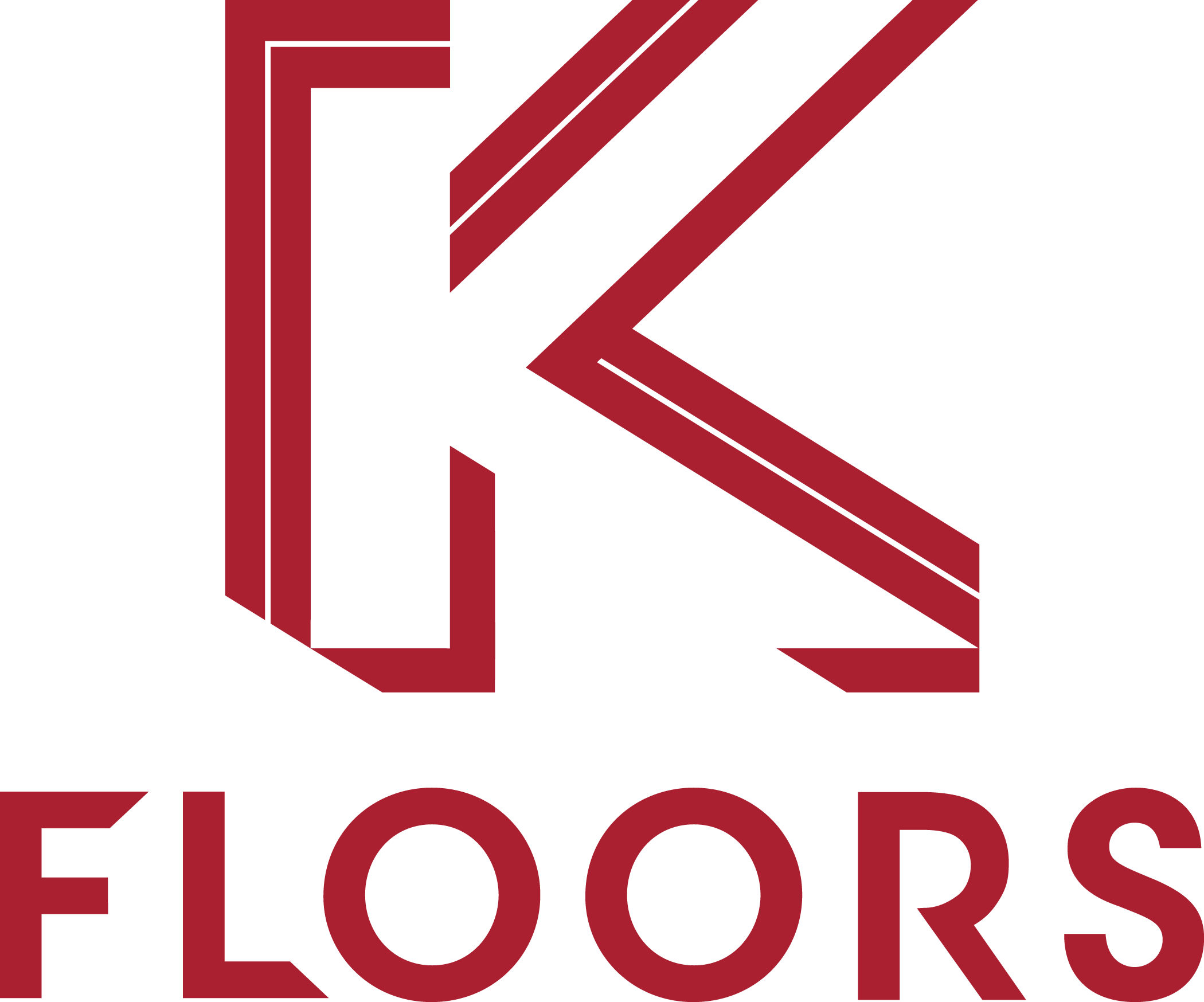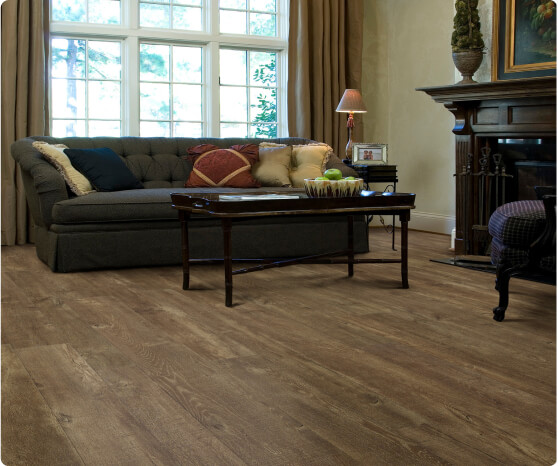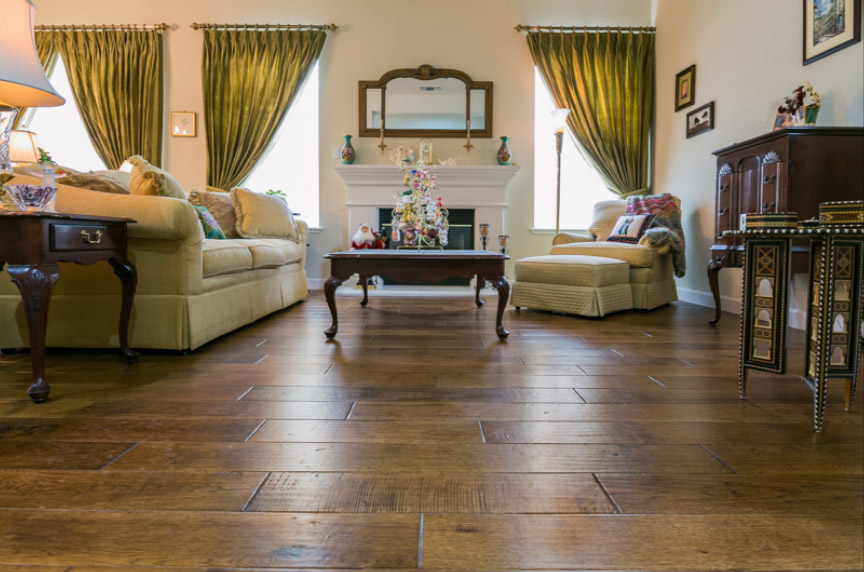Did you know that traditional flooring materials can emit harmful chemicals, impacting indoor air quality? Opting for eco-friendly flooring designs not only enhances sustainability but also promotes a healthier living environment. From bamboo to cork and reclaimed wood, there’s a myriad of sustainable choices for the eco-conscious homeowner. These eco-friendly options not only reduce environmental impact but also add a touch of style to your space. Making the switch to sustainable flooring is a simple yet impactful way to contribute to a greener future.
Table of Contents
ToggleDefining Sustainable Flooring
Core Principles
Sustainable flooring refers to materials and practices that have minimal negative impacts on the environment. Key principles include using renewable resources, reducing carbon footprint, and promoting indoor air quality.
Importance of Eco-Friendly Practices
Choosing sustainable flooring is crucial for minimizing environmental harm. By opting for eco-conscious materials, individuals can contribute to reducing deforestation, lowering greenhouse gas emissions, and preserving natural habitats.
Benefits of Sustainable Flooring Options
- Healthier Indoor Environment: Sustainable flooring materials like bamboo and cork are free from harmful chemicals, improving indoor air quality.
- Long-Term Cost Savings: While initial costs may be slightly higher, sustainable flooring options are durable and require less maintenance, leading to long-term savings.
- Versatile Design Choices: From reclaimed wood to recycled glass tiles, sustainable flooring offers a wide range of design options to suit various styles and preferences.
Types of Eco-Friendly Floors
Hardwood Flooring
Hardwood flooring, derived from traditional flooring materials, offers a timeless and elegant look to any space. Its durability and longevity make it a sustainable choice for eco-conscious individuals. The natural beauty of hardwood floors enhances the aesthetic appeal of a home while also adding value to the property. Hardwood floors are biodegradable, reducing environmental impact when disposed of.
Laminate Flooring
Laminate flooring, although cost-effective, falls short in terms of sustainability compared to hardwood. While it may mimic the appearance of wood, laminate is typically made from composite wood materials that are less environmentally friendly than solid hardwood. Despite being a more budget-friendly option initially, laminate flooring may require replacement sooner than hardwood, contributing to increased waste over time.
Luxury Vinyl Flooring
Luxury vinyl flooring has gained popularity as an eco-friendly flooring option due to its sustainable features. Made from recycled materials like recycled glass tiles, luxury vinyl offers a durable and water-resistant alternative to traditional flooring options. Its versatility in design allows homeowners to achieve the desired aesthetic without compromising on sustainability. Furthermore, luxury vinyl is easy to maintain, reducing the need for harsh cleaning chemicals that can harm the environment.
Benefits of Choosing Green
Environmental Impact
Opting for eco-friendly flooring significantly reduces the environmental impact compared to traditional flooring materials. By choosing sustainable options like bamboo or cork, you contribute to reducing deforestation and promoting environmental conservation.
Indoor Air Quality
One of the notable advantages of green flooring is its positive impact on indoor air quality. Sustainable flooring materials are typically free from harmful chemicals and volatile organic compounds (VOCs), ensuring a healthier living environment for you and your family.
Cost Savings
Choosing eco-friendly flooring options may involve a higher upfront cost, but the long-term benefits outweigh this initial investment. These sustainable choices offer durability, requiring less frequent replacement over the years, leading to significant cost savings in the long run.
Hardwood vs Laminate vs Vinyl
Sustainability
Hardwood: Sourced from hardwood trees, known for its natural and renewable characteristics. Laminate: Made of composite wood, a blend of materials like resin and fiberboard, not as eco-friendly. Vinyl: Contains PVC, a synthetic material that raises environmental concerns due to its production process.
Durability
Hardwood: Long-lasting with proper care, can be refinished multiple times to extend lifespan. Laminate: Resistant to scratches and fading, but less durable than hardwood in the long run. Vinyl: Highly durable and moisture-resistant, suitable for high-traffic areas like kitchens and bathrooms.
Installation & Maintenance
- Hardwood: Requires professional installation due to its intricate process of nailing or gluing down individual planks. Regular maintenance involves sanding and refinishing.
- Laminate: Easier DIY installation with click-and-lock mechanisms. Low maintenance, only needing regular sweeping and occasional damp mopping.
- Vinyl: Simple installation methods like peel-and-stick or floating floors. Easy upkeep with routine cleaning using mild detergents.
Aesthetic Appeal
- Hardwood: Offers a timeless and elegant look with natural variations in color and grain patterns. Enhances the warmth of any room.
- Laminate: Mimics the appearance of hardwood but lacks the authenticity of real wood. Available in various styles, including stone and tile designs.
- Vinyl: Versatile in design options, replicating hardwood or stone visuals. Provides a cost-effective way to achieve different aesthetics.
Insights on Bamboo, Cork, and Linoleum
Bamboo Flooring
Bamboo flooring stands out for its sustainable qualities. This material grows rapidly, reaching maturity in just three to five years, making it an excellent renewable resource. Its growth rate surpasses traditional hardwood trees, which can take decades to mature. Bamboo releases 35% more oxygen into the atmosphere compared to equivalent stands of trees.
The durability of bamboo flooring is another key feature. It is harder than many hardwoods, such as oak or maple, making it a suitable choice for high-traffic areas. Moreover, bamboo’s natural resistance to moisture and insects enhances its longevity.
Cork Flooring
Cork floors are crafted from the bark of cork oak trees without cutting down the tree itself. This harvesting method allows the tree to regenerate its bark every nine years, promoting sustainability. The use of cork dust and recycled materials in manufacturing further reduces waste and environmental impact.
One standout benefit of cork flooring is its natural resilience. The material’s cellular structure enables it to compress under pressure and then bounce back, providing a comfortable walking surface that also absorbs sound. Cork is naturally hypoallergenic and resistant to mold and mildew growth.
Linoleum Flooring
Linoleum flooring is composed of natural materials like linseed oil, pine rosin, ground limestone, and jute fibers mounted on a canvas backing. These components make linoleum an eco-friendly choice as they are sourced from renewable resources. The manufacturing process involves mixing these materials and then curing them to create durable sheets or tiles.
One of the significant advantages of linoleum flooring lies in its longevity and low maintenance requirements. With proper care, linoleum floors can last up to 40 years, reducing the need for frequent replacements. Furthermore, linoleum is biodegradable at the end of its lifespan, minimizing environmental impact.

Selecting the Right Eco Option
Space Suitability
When choosing sustainable options for flooring, it’s crucial to consider the specific space where it will be installed. Different areas of a home or office have varying requirements based on foot traffic and usage.
For high-traffic areas like hallways and living rooms, durable choices such as bamboo or cork flooring are ideal due to their resilience against wear and tear. In contrast, spaces like bedrooms may benefit from softer options like wool carpeting for added comfort.
Durability and Maintenance
Friendly options should not only be environmentally conscious but also practical in terms of durability and maintenance. Consider factors such as water resistance, scratch resistance, and ease of cleaning when making your choice.
Materials like bamboo and linoleum offer excellent durability, while requiring minimal maintenance compared to traditional hardwood floors. These options not only reduce your carbon footprint but also save you time and effort in upkeep.
Professional Guidance
Consulting with professionals specializing in eco-friendly flooring is essential for making informed decisions. These experts can provide valuable insights into the best low VOC (Volatile Organic Compound) options that minimize harmful emissions into the environment.
Installation Tips for Sustainable Floors
Proper Preparation
Before installing sustainable flooring, ensure the subfloor is clean, dry, and level. This step is crucial to prevent any issues with the new floor in the future. Make sure to address any moisture problems before proceeding with the installation.
Mindful Installation Techniques
When installing eco-friendly floors, follow the manufacturer’s guidelines meticulously. Use non-toxic adhesives and finishes to maintain the environmentally friendly aspect of the flooring. Proper installation techniques not only ensure durability but also contribute to a healthier indoor environment.
Maintenance for Longevity
To prolong the life of sustainable flooring materials, adopt a regular cleaning routine using gentle, eco-friendly products. Avoid harsh chemicals that can damage the floor’s finish and harm the environment. Place doormats at entry points to minimize dirt and debris that can scratch or wear down the floor over time.
Caring for Your Eco-Friendly Floor
Regularly inspect your friendly flooring for any signs of wear or damage. Addressing minor issues promptly can prevent them from escalating into more significant problems that may require costly repairs or replacements. Consider using furniture pads to protect the floor from scratches caused by moving furniture.
Benefits of Sustainable Flooring Maintenance:
- Prolong lifespan: Regular maintenance can extend the longevity of sustainable flooring.
- Preserves appearance: Proper care helps maintain the aesthetic appeal of eco-friendly floors.
- Eco-conscious approach: Using environmentally friendly cleaning products aligns with sustainable living practices.
Conclusion
In a world where sustainability is key, your flooring choices matter. Opting for eco-friendly floors not only benefits the environment but also enhances your indoor air quality and overall well-being. From bamboo to cork to linoleum, each option brings unique advantages that align with your eco-conscious lifestyle.
As you embark on your sustainable flooring journey, remember to consider durability, maintenance, and installation requirements. Your informed decision today will pave the way for a greener tomorrow. Choose wisely, and let your floors reflect your commitment to a more sustainable future.
Looking for the Perfect Flooring Design? Discover Your Match at K Floors in Concord, California!
K Floors isn’t just a flooring company; we’re your partners in creating spaces that embody quality and style. Our diverse range of flooring designs, from luxury vinyl to waterproof styles and vinyl planks, caters to every taste and need. Experience the K Floors difference. Our expert team is here to guide you, offering complimentary in-home consultations and a selection sourced from top vinyl suppliers. Explore our extensive collection and find not just a floor, but a reflection of your unique vision.
At K Floors, we blend traditional craftsmanship with modern design, ensuring every floor we install makes your space feel truly like home. Whether for residential or commercial projects, we’re committed to quality and authenticity. Visit us in Concord, California, and start your journey to the ideal flooring design with K Floors.
Disclaimer
The materials available on this website are for informational and entertainment purposes only and not to provide legal advice. You should contact your attorney to obtain advice concerning any particular issue or problem. You should not act or refrain from acting based on any content included in this site without seeking legal or other professional advice. The information presented on this website may not reflect the most current flooring developments. No action should be taken in reliance on the information contained on this website and we disclaim all liability concerning actions taken or not taken based on any or all of the contents of this site to the fullest extent permitted by law.




